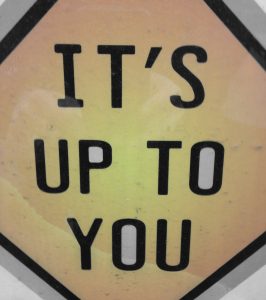
An essential strategy of the agile careerist is incrementally accumulating knowledge.
 It pays to take a DIY (Do-it-Yourself) approach to adding skills to your portfolio. Don’t wait for others in your company to determine your professional development plan.
It pays to take a DIY (Do-it-Yourself) approach to adding skills to your portfolio. Don’t wait for others in your company to determine your professional development plan.
A dynamic education plan is like a tactical weapon against the dissipation of your skill set. It will help fortify your knowledge base, and equip you to keep pace with change.
The strongest driver for treating education as a starting point, with steady incremental upgrades to your profession, is the dwindling half-life of learned skills. Originally coined for chemistry and physics, the definition of half-life is: the time it takes for something to degrade to half its original value.
Salim Ismail, a Silicon Valley author of Exponential Organizations, investor, and entrepreneur, assesses the half-life of knowledge has moved from thirty years to five years in the span of one generation.
Today, the opportunity to learn surrounds you in more accessible ways than ever before. Between formal school studies, online training, conference education, and experiential learning while you try something new, there are a variety of options for adding skills
Consider the differences, and make the choice that’s right for you.
Formal School Studies
>A formal education, like an advanced degree or certificate program, will strengthen your expertise in a particular industry or provide structure for absorbing a new body of knowledge. Unless your employer is funding the program, this is the costliest education path.
Online Education
Resourceful individuals with a passion for learning and a lean wallet can design their own programs, like a virtual MBA or advanced training in Financial Services. While not credentialed, the skills gained through online courses provide valuable content and training. The explosion of online courses by individual thought leaders, a byproduct of the rise of how-to solopreneurs, offers numerous choices for learning and the exploration of new ideas.
 Much of the education is free! We live in the middle of a knowledge Renaissance. YouTube videos and TED Talks are popular contributors to the information kingdom, where all we have to do to claim the knowledge bounty is login and learn.
Much of the education is free! We live in the middle of a knowledge Renaissance. YouTube videos and TED Talks are popular contributors to the information kingdom, where all we have to do to claim the knowledge bounty is login and learn.
These 5 tools can help you acquire skills at your own pace and stay agile.
5 Learning Platforms For Self-Education
1. Massive Open Online Courses (MOOCs)
- What it is: Free online courses for everyone!
- How much it costs: free
- Learn more
2. LinkedIn Learning
- What it is: “Courses in Business, Technology and Creative Skills taught by industry experts”
- How much it costs: part of your LinkedIn subscription
- Learn more
3. Coursera
- What it is: 1000+ courses from schools like Stanford and Yale…
- How much it costs: $29-$99
- Learn more
4. Udemy
- What it is: Udemy is a global marketplace for learning and teaching online where students are mastering new skills and achieving their goals by learning from an extensive library of over 42,000 courses taught by expert instructors”
- How much it costs: $20-$50 per course
- Learn more
5. TED Talks
- What it is: TED Talks are influential videos from expert speakers on technology, education, business, science, and more.
- How much it costs: Free to view recorded talks
- Learn more
Skills Update Coursework
Another way to ensure relevance in the workplace is to take a skills update course. Many of these courses are instructor-led, although some of their curriculum is online.
Ten-week programs offered by education companies like General Assembly enable workers to “upskill” in the areas of Design, Marketing, Technology, and Data. For example, an engineer or product manager may consider enhancing product management expertise or learning about agile methods to advance his career.
Let’s Talk About the Knowledge Gap…
There’s a giant knowledge gap left by outdated content and techniques learned in our formal education jaunt. Skills education companies fill this gap in new and creative ways.
Corporations, while slow to the party on customized relevant learning opportunities, are starting to reconfigure their systems for employee learning. The push approach to structured on-the-job training is gradually being replaced by an employee self-directed approach to learning, all provided by the employer.
With this method, employees choose their areas of interest, taking responsibility for their own career advancement, rather than relying on a one-size-fits-all for employee training. These types of on-demand learning management systems are developed and managed by training companies to fit the needs of each corporation.
Whether you decide to pursue online learning or a more formal style of education, you are in charge of your work experiences and accountable for the progression of your career.
If a corporation’s training systems do not include the right education for its employees, the agile careerist will design custom-curated programs to future-proof her career.
Discover the magic of self-direction by creating a DIY approach to your education. One course at a time. The agile careerist views learning as a lifelong process.
For more resources to help you along your self-directed career journey, sign up for Marti’s 52 Ideas.
I’ve interviewed hundreds of agile careerists for my book Activate Your Agile Career. I hope their stories inspire you to discover the possibilities of self-education. For more details on career agility, check it out here.
What tools or platforms do you use to acquire skills and to stay relevant?
